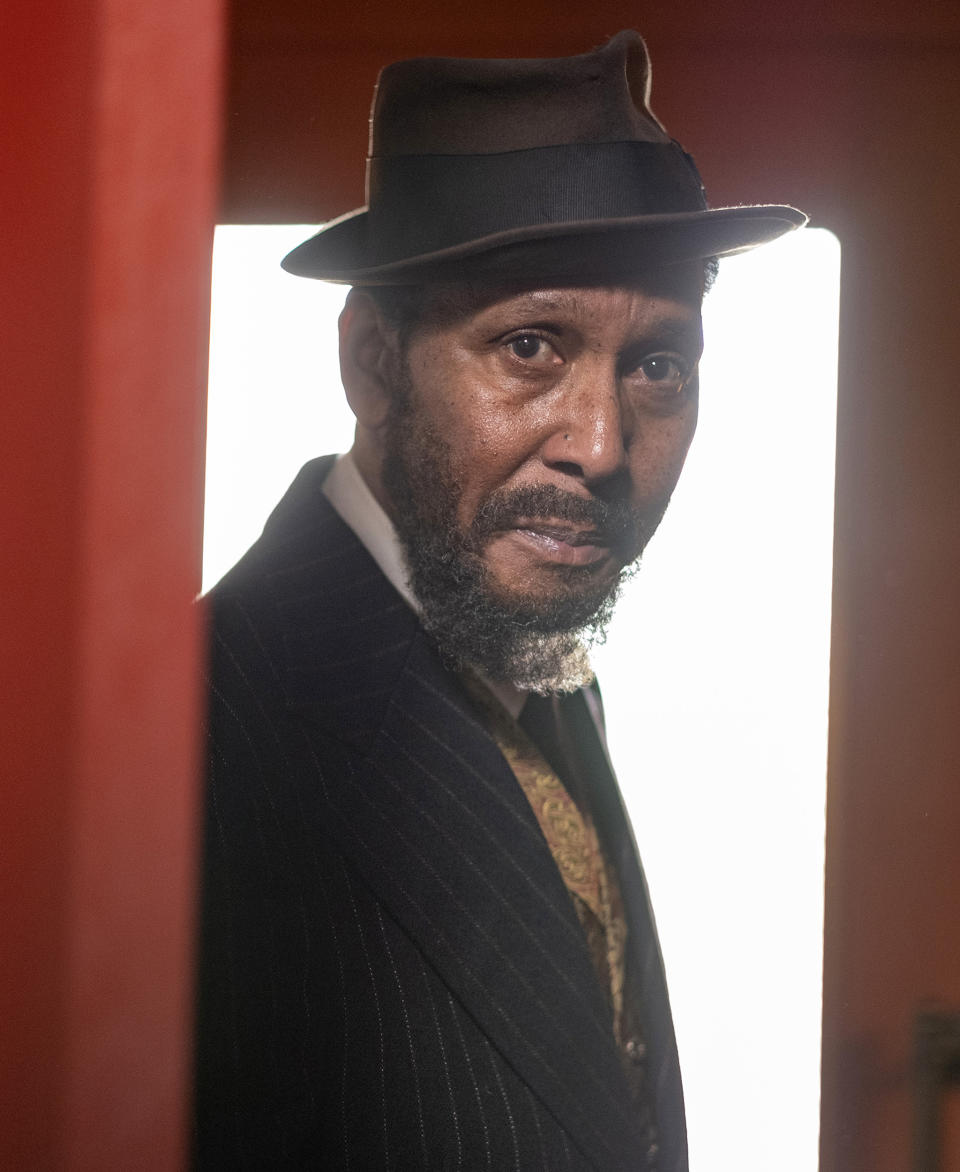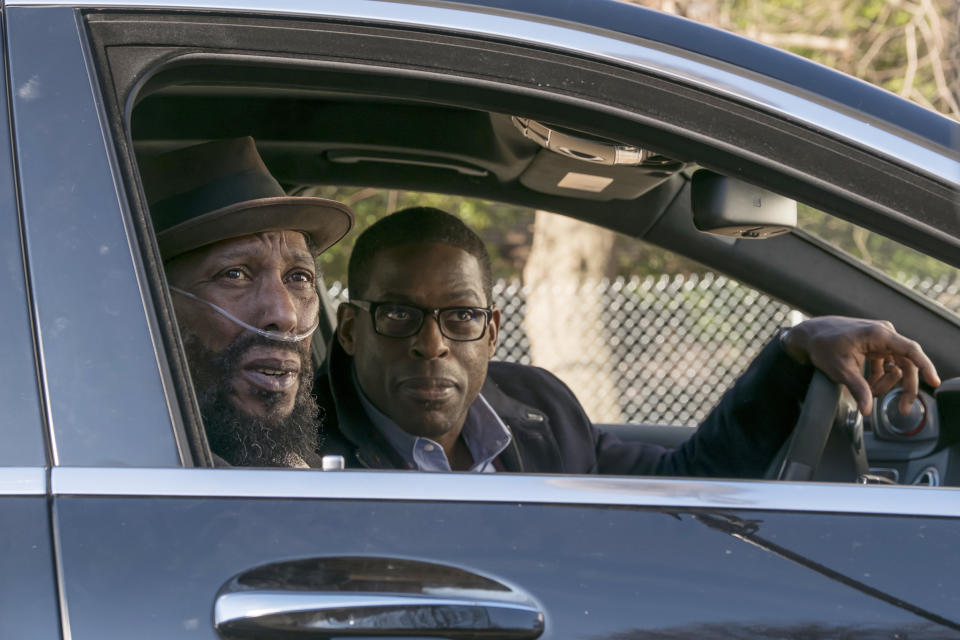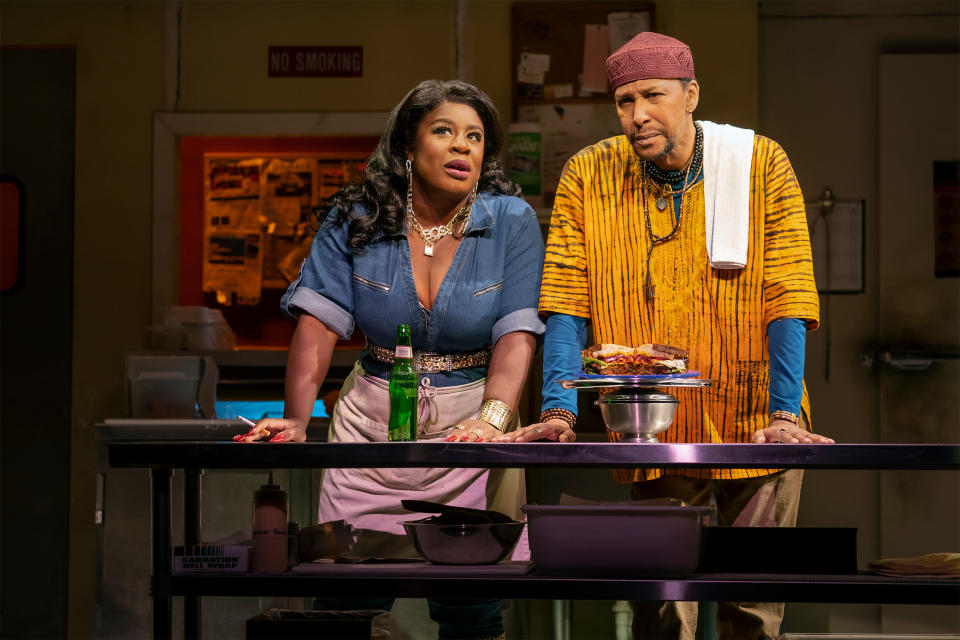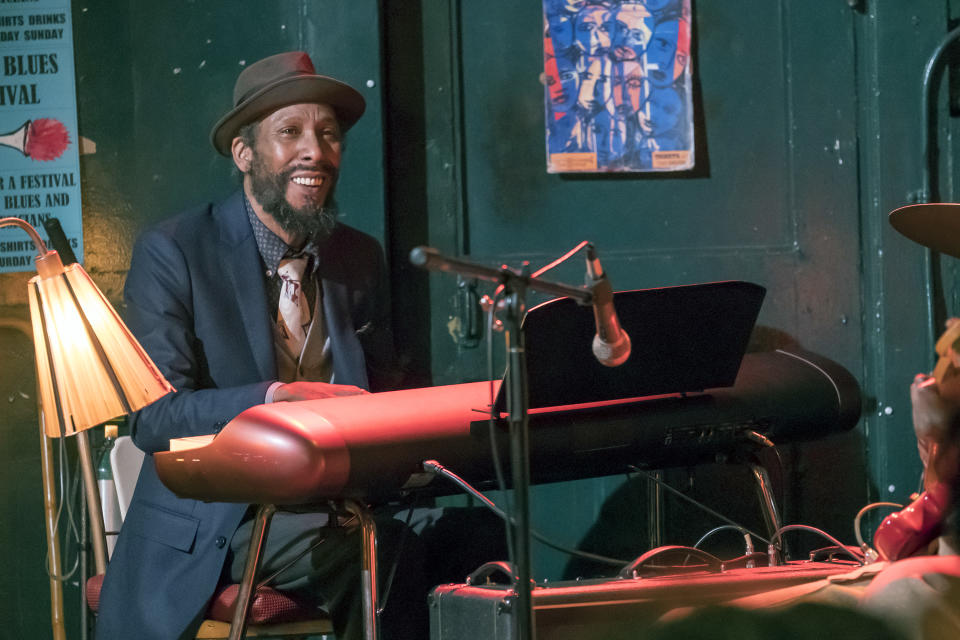Ron Cephas Jones reflects on his ‘This Is Us’ role and health struggles
- Oops!Something went wrong.Please try again later.
- Oops!Something went wrong.Please try again later.
Ron Cephas Jones, who played William, the estranged biological father of Randall (Sterling K. Brown), has died at age 66. In a 2022 interview, the actor looked back at his Emmy-winning role and the penultimate episode of the series.
Why William?
In the second-to-last episode of NBC’s “This Is Us,” matriarch Rebecca (Mandy Moore), nearing the end of her battle with Alzheimer’s, says farewell to the people in her life. The metaphorical prolonged goodbye takes place on a train ride, all in her imagination — and William is the conductor.
Speaking to TODAY about “This Is Us” and the course of his career, fan-favorite Jones reflects on that question: Why was William chosen to walk Rebecca back to the caboose to reunite with her late husband Jack (Milo Ventimiglia)?
Jones could have dwelled on the question, trying to find out why his character was chosen to navigate the show’s equivalent to the journey down the River Styx — but he didn’t, and recommends audiences do the same.
“I stayed in my own head and tried not to get into (creator Dan Fogelman’s) head about why. 'Why William?' was a decision that people have to think about and that’s the beauty of it. There’s no right or wrong,” Jones begins to explain from home in Los Angeles on his day off from filming season three of Apple TV+’s “Truth Be Told.”

For Jones, the answers may be in the “layers” of the script and the story, the very thing that drew him to “This Is Us.”
“There was a secret that was underlying the whole series,” Jones said. The secret he’s referring to is a bombshell one: Rebecca raised William’s son, Randall, without ever introducing him to his biological father. Randall eventually tracks William down.
William and Rebecca’s relationship is rocky, understandably. But they’re undeniably forever bonded by the son they share. From then on, William is embedded into the Pearson family. The poignance of that gets to Jones — he, like many viewers, is not immune to shedding a tear while watching the hit drama.
Jones choked up when Deja (Lyric Ross) tells Randall, her adoptive father, she wanted to name her baby William, a nod to his biological father. Even though Deja had never met William, Jones feels that William was “woven into the consciousness” of everybody’s story in the series, and that all the characters' stories interconnect similarly.
“If you go all the way back and go through it again, you’ll find something that will connect those characters when you never saw those characters in a scene. Go back and watch it again because it’ll be a whole other series. I’m telling you — it’s got so many layers. You’ll find things and see things,” Jones. “That’s great writing.”
Jones, who has been acting since the ‘90s, is drawn to the “layers” present in writing, which is what he says "This Is Us" has in common with Shakespeare. For Jones, everything starts with the script.
“I’ve learned that over the years and the way I’ve worked is that words are so important. To be able to study the words in the way that I do gives me a deeper understanding of the writer, the character and the place,” he said.

It was Pulitzer Prize winning playwright Lynn Nottage’s writing that drew Jones to star in her latest work, a Broadway play called “Clyde’s.” The story follows formerly incarcerated kitchen staff trying to cook up a new life for themselves by working at a truck stop sandwich shop run by Clyde, a bully played by Uzo Aduba (“Orange Is the New Black”). The play ran for about two months at the Helen Hayes Theater last fall from October to January during a hiatus of filming “This Is Us.”
Jones, in his fourth Broadway show, is recognized with his first Tony Award nomination for his portrayal of Montrellous, a man who went to jail solely to protect his brother so he could go on to become a doctor. After being released, Montrellous finds comfort, soul and prayer in the power of food by crafting unique sandwiches at Clyde’s along with mentoring the other convicted cooks in the kitchen. The winner will be announced during the Tony Awards on Sunday, June 12 at 8pm on CBS.
“He is a convict because he chose to be a convict. That’s one of the elements that really attracted me to the character — the sacrifice he made. There are a lot of people I know that have resurrected themselves — taking a lemon and turned it into lemonade — if I can take a quote from ‘This Is Us.’ That is what Montrellous did. He took a life that was like lemons, and turned it into lemonade.”

Jones didn’t even have to read the script to know he wanted to do it. He knew Nottage for years and always wanted to work with her. “[Clyde’s] was different from anything that she had ever written before,” Jones says. “It had all the elements and ingredients that a Pulitzer Prize winner can do. The play is deep.”
But committing to the part required a leap of faith — and a team of medical support. A year prior to “Clyde’s,” Jones had a double lung transplant in the spring of 2020 at UCLA Medical Center, right at the beginning of the pandemic. He had been battling a chronic obstructive pulmonary disease, as first reported by the New York Times.
One of Jones' most encouraging incentives to heal quickly was to be able to perform in “Clyde’s.”
“I don’t want to say a miracle but I was very fortunate. I had great doctors. It still was a very difficult and arduous recovery. I’m recovering for the rest of my life,” Jones says two years post surgery. “You don’t get new lungs and start running track. It’s a procedure that you have to constantly work on your body. Medication is involved and therapy.”
He was able to do film and TV, including “This Is Us” more easily because “it’s a stop and go process,” Jones explained. “But with the stage, you have to maintain that breath. So it was building back my diaphragm and building back my voice.”
Jones wasn’t even sure a Broadway show with eight performances as week was even in the cards for him post-surgery.
“The question was: would I ever be able to do a play again? Many people with lung disease are relegated to a wheelchair and an oxygen machine. There was no other alternative but to try to go with a transplant and see if I could pull my life together. I would have been relegated to an oxygen machine in a wheelchair. And of course, you can’t do a play," Jones said.
“Clyde’s” was staged during the height of the Omicron variant that swept through Broadway, closing dozens of shows over the winter holiday.
“I couldn’t go out a lot if not at all. I sequestered a lot and didn’t go out to eat at all. Most of my life [at that time] was doing it that way so I could maintain the run. But that’s what I love to do," Jones said.

Love: It’s what keeps Jones performing through surgery recovery, and what kept him performing for all the years before he was a household name.
He credits “This Is Us” for redefining his career and getting him to the point: Award nominations, including getting an Emmy nom the same year as his daughter, being recognized on the street. After several short-lived roles, William, which he got at the age of 59, was the first that stuck.
“‘This Is Us’ was the show, after 50-something years of being on the boards and doing a little spot television that lasted for the six seasons and it gave me a career in Los Angeles. It gave me a chance to show people my level of work. So, I’m getting work because of my work as opposed to trying to toil. I’ve done that all those years in New York. It’s the idea that my work after all is perseverance.”
He added, “It took a little while, but it paid off in the end.”
This article was originally published on TODAY.com

